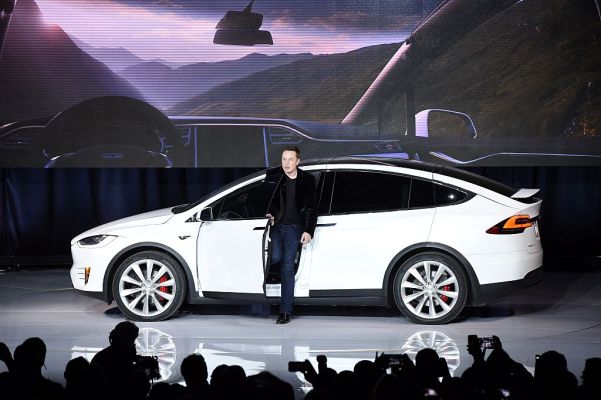In light of Tesla going a bit rogue and disclosing details of the fatal crash that involved Autopilot, the National Transportation Safety Board is removing Tesla as a party in the investigation.
“The NTSB took this action because Tesla violated the party agreement by releasing investigative information before it was vetted and confirmed by the NTSB,” the NTSB wrote in a press release today. “Such releases of incomplete information often lead to speculation and incorrect assumptions about the probable cause of a crash, which does a disservice to the investigative process and the traveling public.”
This is not too surprising, given the NTSB said it was “unhappy” with Tesla following its March 30 disclosure that Autopilot was engaged during the crash.
Losing party status means Tesla is no longer able to provide technical assistance to the NTSB. As the NTSB notes, having party status is a “privilege” that enables two-way information sharing.
“It is unfortunate that Tesla, by its actions, did not abide by the party agreement,” said NTSB Chairman Robert Sumwalt. “We decided to revoke Tesla’s party status and informed Mr. Musk in a phone call last evening and via letter today. While we understand the demand for information that parties face during an NTSB investigation, uncoordinated releases of incomplete information do not further transportation safety or serve the public interest.”
The NTSB says it’s rare to revoke party status, but that it has happened before. While Tesla is no longer an official party, the NTSB says it expects Tesla to cooperate with any future data requests.
While Tesla is no longer a party in this specific case, the company is still working with the NTSB in other investigations, like the one pertaining to a crash in Lake Forest, California and one in Culver City.
On Wednesday, Tesla provided Bloomberg with a statement implying Tesla willingly withdrew from the party agreement.
“Tesla withdrew from the party agreement with the NTSB because it requires that we not release information about Autopilot to the public, a requirement which we believe fundamentally affects public safety negatively,” the company said in a statement to Bloomberg. “We believe in transparency, so an agreement that prevents public release of information for over a year is unacceptable.”
In a lengthy statement, Tesla said it willingly chose to withdraw from the agreement:
Last week, in a conversation with the NTSB, we were told that if we made additional statements before their 12-24 month investigative process is complete, we would no longer be a party to the investigation agreement. On Tuesday, we chose to withdraw from the agreement and issued a statement to correct misleading claims that had been made about Autopilot — claims which made it seem as though Autopilot creates safety problems when the opposite is true. In the US, there is one automotive fatality every 86 million miles across all vehicles. For Tesla, there is one fatality, including known pedestrian fatalities, every 320 million miles in vehicles equipped with Autopilot hardware. If you are driving a Tesla equipped with Autopilot hardware, you are 3.7 times less likely to be involved in a fatal accident and this continues to improve.
It’s been clear in our conversations with the NTSB that they’re more concerned with press headlines than actually promoting safety. Among other things, they repeatedly released partial bits of incomplete information to the media in violation of their own rules, at the same time that they were trying to prevent us from telling all the facts. We don’t believe this is right and we will be making an official complaint to Congress. We will also be issuing a Freedom Of Information Act request to understand the reasoning behind their focus on the safest cars in America while they ignore the cars that are the least safe. Perhaps there is a sound rationale for this, but we cannot imagine what that could possibly be.
Something the public may not be aware of is that the NTSB is not a regulatory body, it is an advisory body. The regulatory body for the automotive industry in the US is the National Highway Traffic Safety Administration (NHTSA) with whom we have a strong and positive relationship. After doing a comprehensive study, NHTSA found that even the early version of Tesla Autopilot resulted in 40% fewer crashes. Autopilot has improved substantially since then.
When tested by NHTSA, Model S and Model X each received five stars not only overall but in every sub-category. This was the only time an SUV had ever scored that well. Moreover, of all the cars that NHTSA has ever tested, Model S and Model X scored as the two cars with the lowest probability of injury. There is no company that cares more about safety and the evidence speaks for itself.
